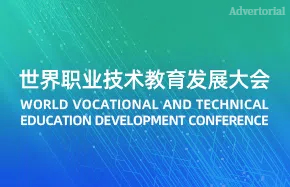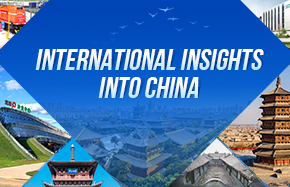Enterprises get back to full production

While trying hard to prevent and control the novel coronavirus, companies at Xi’an Hi-tech Industries Development Zone have alleviated difficulties in employment, logistics and supply chains, and gradually realized full recovery of production, executives said.
There are more than 200 foreign-funded enterprises in the high-tech zone, where the total revenue of foreign trade accounts for more than 90 percent of the city’s total. Among them, more than 90 foreign-funded enterprises, includingSamsung Semiconductor and Micron Semiconductor, are concentrated in the Xi’an High-tech Comprehensive Bonded Zone.
During the epidemic prevention and control period, some semiconductor companies faced shortages of raw materials.
The high-tech zone assisted companies to solve transportation problems and coordinated the resumption of production for supporting enterprises in the industrial chain.
“We have set up a special team to serve foreign companies, communicate with the Chinese embassy in South Korea, and issue more than 400 work visas for core technical personnel of Samsung and other foreign companies,”said Shi Kangdu, deputy director of the management committee of the Xi’an High-tech Comprehensive Bonded Zone.
“In the next step, we will do a good job of returning foreign employees by strictly preventing the importation of overseas epidemic situations,” Shi said.
Yin Yong, general manager of Schneider Electric Equipment Engineering Xi’an, said that at the initial stage of resumption, some of the company’s raw materials were in urgent need as the suppliers failed to resume work at the same time.
After the resumption of production, the company’s capacity has increased by 20 percent compared with the same period last year, thereby gaining an opportunity in market competition.
At present, orders received have increased by 50 percent compared with the same period last year, and factory orders have been arranged for the end of July this year.
Yin believes that with the help of the local government, Schneider has been able to resume work quickly and seize market opportunities, and he is confident in the future development of the enterprise.
“After the epidemic, it is expected that China will increase infrastructure construction in the medical and health field, which will bring us new opportunities. We will continue to take root in China and actively participate in it,” Yin said.
The first phase of aSamsung semiconductor memory chip project was officially put into production in 2014, and did not stop during the Spring Festival.
According to Chi Xianji, vice-president of Samsung (China) Semiconductor, he said that due to the epidemic, the company had problems in logistics, raw materials, manpower and other aspects in February, but with the joint efforts of local governments and enterprises, the first and second phases of the project have maintained full production of 130,000 memory chips per month.
The Samsung Semiconductor memory chip project is the largest foreign-invested project in China’s electronic information industry.
The second phase of the project started construction in March 2018 and is scheduled to be put into production in the first quarter of 2020. On March 10, the first phase of the second stage of Samsung’s semiconductor memory chips went offline as scheduled. Investment in the first phase of the project was$7 billion, and full production is expected to be achieved in August this year. The second phase is also advancing as planned.
“Since Samsung’s investment in Xi’an, we have maintained smooth and efficient cooperation with Shaanxi province, Xi’an city and the high-tech zone. Samsung Semiconductor is full of confidence in Xi’an’s economic development,” Chi said.
Xi’an Shengsaier Electronics operates the production plant of Honeywell Intelligent Building Technology Group in Xi’an, a Fortune 500 company.
He Jun, general manager of the company, said the support and services of the local government have played an important role in the timely recovery of enterprises.
“The Xi’an high-tech zone assigned a liaison to the company to understand the needs and difficulties in a timely manner, and solved the two major problems of personnel and logistics.

























